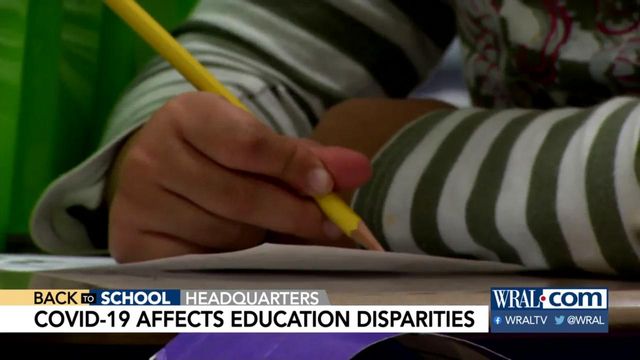Chapel Hill-Carrboro schools cites concerns of 'segregating' district, will go virtual until end of year
Students at Chapel Hill-Carrboro City Schools will be in online school until the end of the semester, rather than the first nine weeks of school. All board members agree that the school year would be held virtually next semester, under the guidance of Superintendent Jim Causby.
Posted — UpdatedThis plan is to limit the spread of coronavirus in the district and to make sure that the CHCCS's staff remains safe during the pandemic.
All board members agreed on Thursday night that the school year would be held virtually next semester under the guidance of Superintendent Jim Causby.
The district was originally going to be in two tracks -- one group of students who opted-in to staying online all semester and another group of students who were going to be back in the classroom after the nine-week period was over.
"We just cannot do it," Causby said, explaining that the original schedule would have been a "headache." Trying to fulfill the requests of parents and teachers who all have different needs was too difficult, Causby said.
Nearly 70% of the district's staff said in a survey they would need to request accommodations surrounding COVID-19. A total of 1,780 staff members were surveyed, which is over half of the CHCCS staff.
A large percentage of the staff responding said they were at high-risk for the coronavirus. Another chunk of the respondents said that they would need to request special accommodations related to childcare.
Staff in the CHCCS survey said they would want additional personal protective equipment, like face masks or plastic shields to limit the spread of coronavirus.
About half of students surveyed said they preferred a hybrid model, and a little less than half said they preferred remote learning. Among the more than 8,000 respondents, Black families were most likely to choose remote learning and white families were most likely to choose the hybrid learning. Black and Hispanic families were the least represented in the CHHS survey.
The survey wasn't able to gather significant data on responses from Native American and Pacific Islander students due to a lack of responses, Causby said.
"You realize, what we are going to be doing with two tracks is segregating the school system," Causby said. "I've worked too hard for 50-something years in this school system to be doing that."
Related Topics
• Credits
Copyright 2024 by Capitol Broadcasting Company. All rights reserved. This material may not be published, broadcast, rewritten or redistributed.






